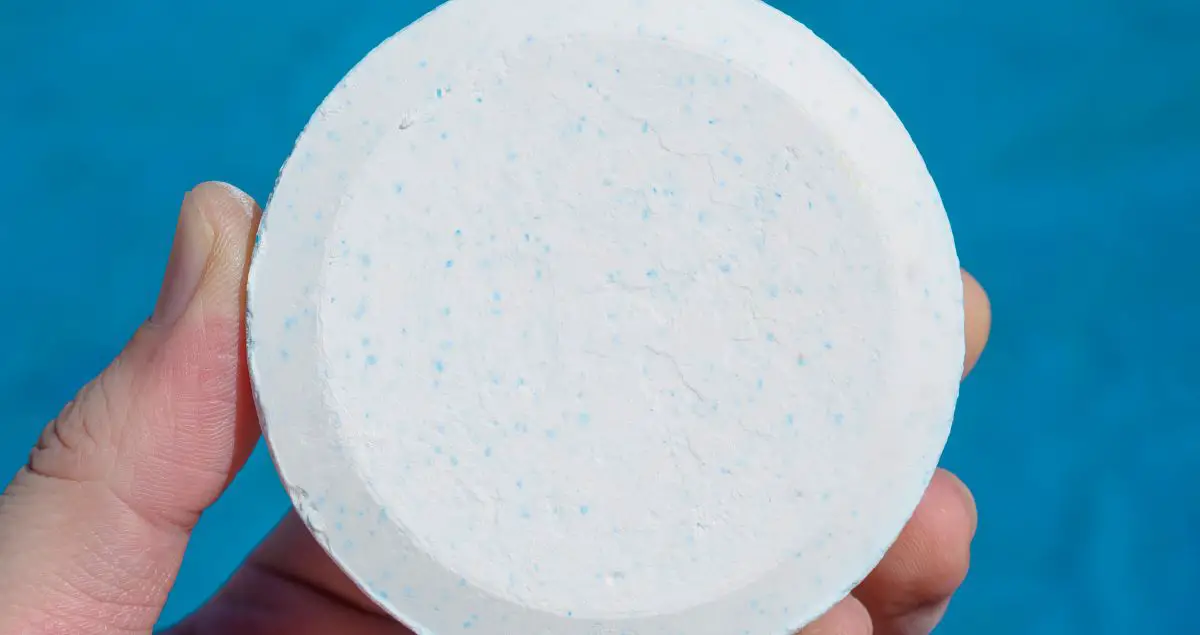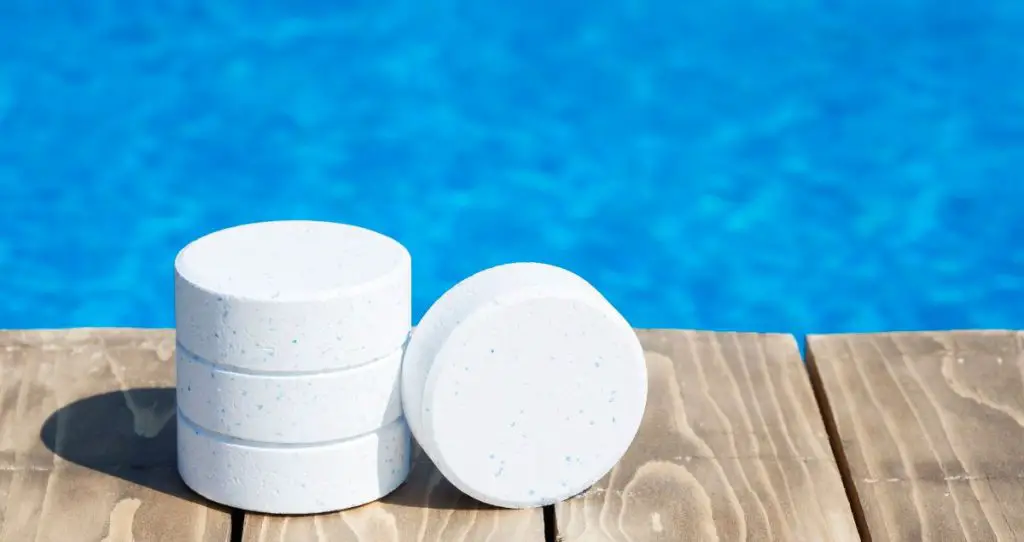People often notice an odd smell in their house that they can’t figure out what it is or where it’s coming from. In many cases, the culprit is household chlorine bleach and its fumes.
While bleach has been used for years to kill off harmful microbes and to clean bathrooms, kitchens, floors, and other surfaces, it can have adverse effects on indoor air quality and on humans when inhaled or absorbed through the skin.
If you smell chlorine in your house, that might not be a good thing. After all, you probably associate chlorine with the smell of a pool or your bathtub, and most likely, it’s not coming from either of those places! What causes the smell of chlorine in the house? Here are some of the culprits that could be to blame.
Two main reasons your home might start smelling like chlorine: someone left a pool chemical out where it can evaporate into the air or something has gone wrong with your ventilation system.
Chlorine can be produced from a number of different sources in the home. In most cases, the smell is caused by household cleaners or various cleaning agents coming into contact with water. Whenever chlorine is mixed with water, it turns into a dilute solution of hypochlorous acid (HOCl).
Although it’s a great sanitizer, when you have too much in the air, the air smells like chlorine. Mild cases can go away in a few hours or less, but if the smell lingers for more than 24 hours, you should take steps to remove the chlorine odor.
This article aims to solve the following problems:
- Why does my house smell like bleach?
- What smells like bleach?
- Why do I smell chlorine in my house?
- What smells like chlorine?
- Why there is a sudden bleach smell in apartment?
- How to fix chlorine gas leak in house?
What Does Chlorine Gas Smell Like?
According to many people, chlorine has a very distinctive and not very pleasant smell. The smell of chlorine gas is difficult to describe, but most people say it smells like ammonia. Some people have also noted that chlorines have a soapy or bleach-like smell. The odor may seem stronger when you first turn on your water, but it will dissipate over time (within a few hours).
Chlorine, when produced in its liquid form, does not have an odor that can be detected by the human nose. However, once the liquid is released into water, it begins to evaporate and takes on the distinct smell that many associates with swimming pools or fresh tap water. Although some people don’t like the smell of chlorine, it doesn’t pose any health risks and provides many benefits to municipal water systems and the local environment.
What Does Chloramine Gas Smell Like?
Chloramine on the other hand, one way to know whether your tap water contains chloramine is by simply sniffing it. If you can smell a strong chlorine odor, then you are most likely drinking water that has been treated with chloramine. The greenish-yellow spot that you are probably smelling is chloramine, which is a combination of chlorine and ammonia.
Chloramines are produced in water when disinfectants like chlorine combine with organic substances. This can be attributed to both chemical and physical changes taking place in your body due to exposure. Typically, chemical contaminants cause more rapid changes (reactions) in your body than other forms of pollution.
The Problem of Chlorine Smell in House

Chlorine is commonly used to disinfect water and clean swimming pools. When chlorine comes into contact with organic matter like bacteria or mold, it creates an odor called chloramine. (This is why a swimming pool smells different after someone gets out of it – the chlorine comes into contact with moisture from a human’s body, causing an odor.)
With so many different sources for smelling like chlorine, you need to figure out what’s causing your house to smell before you can eliminate it. Here are some potential causes of a chlorine smell inside your house.
The Cause of Bleach Smell in House
So what’s causing the house smells like chlorine, and what can you do about it? It all starts with your water. As water sits in pipes, it begins to absorb particles that contain certain compounds such as chloramine.
For example, if you live in an area where the public water supply has chlorine added to kill microorganisms. In this case, the chlorine smell may seem especially strong because the odor is concentrated within your home.
Why There Is Sudden Bleach Smell in the House?
Bleach is an oxidizing agent that can be used for disinfecting or bleaching various household items. Bleach is highly corrosive, which means it does not mix well with some chemicals and should not be stored together with other cleaning products.
When you have chlorine bleach in your home, there is a risk of dangerous chemical reactions if you store these items incorrectly. That’s why it’s important to know what to do when there is a bleach smell in your home.
A variety of products can leave behind an odor that smells similar to bleach. Most of the time, the smell is simply caused by household cleaning products – namely, bleach. Products containing bleach can cause an odor that is overwhelming and persistent. Using too much bleach or cleaning with chlorine-based products can also cause lingering smells.
It’s no secret that bleach is an excellent disinfectant, but too much of it can make you and your home smell pretty nasty. Keeping your cleaning supplies sealed inside glass containers will keep odors from affecting the rest of your house – and washing your rags and sponges regularly will minimize how much of it gets airborne.
It’s important to note that persistent bleach smells should be checked out by a physician immediately; it could indicate something more serious like asthma or lung disease. The best way to get rid of a bleach odor is to find out where it’s coming from. Then, you can take quick action.
How to Get Rid of Chlorine Smell in House?
Harsh chlorine chemicals can leave your home smelling like you’ve just spent an afternoon at a local pool. While an occasional whiff of chlorine won’t hurt anyone, you can use these tips to help prevent that chemical smell from taking over your house and keep those harsh fumes out of your lungs.
Once you identify where it’s coming from, then you can take steps to remove that source or find ways to adjust how often it gets used.
At the same time, it’s worth keeping in mind that chlorine is toxic to humans when exposed too much. Experts recommend going to the hospital if you smell chlorine in your house or workplace because a leak could potentially cause serious harm. If you have any questions or concerns about chlorine smells, it’s best to talk to a professional.
There are simple ways to prevent chlorine smell in your home. Open windows for a few hours after using a pool or spa if possible, this will help air out any lingering odors. If that’s not an option, try running a fan or two overnight to help circulate fresh air through your house. Also, ensure all doors and windows are sealed tightly so no smells linger inside when you’re not using them.
When it comes to getting rid of the smell, neutralizing odors like chlorine are simple with household cleaning products such as vinegar and baking soda. Also, keep your windows open for some fresh air. If the problem persists after trying these methods, consider calling an HVAC expert because there may be a problem with your ventilation system – and turning on an air purifier also isn’t a bad idea.
Conclusion
Anyone who has ever been to a swimming pool or spa knows that distinctive chlorine smell. This is because these locations use chlorine as a disinfectant to keep the water clean and free of germs and bacteria.
While this smell doesn’t exactly make you want to jump into the water, it’s actually a good thing – it means that the pool is clean and safe for swimming. However, anyone who owns their own home will know that there are some downsides to living in an environment with so much chlorine.
When you begin to detect this pungent aroma in your home, it could indicate a problem that needs fixing sooner rather than later. The stench of chlorine in the house can be quite difficult to handle, especially if you suffer from asthma or allergies.
If you notice this smell in your house, it’s important to learn how to get rid of it as soon as possible because it can not only be unpleasant but also affect your health over time if left untreated. These steps will help you handle the chlorine smell inside your house.
Read Next:

